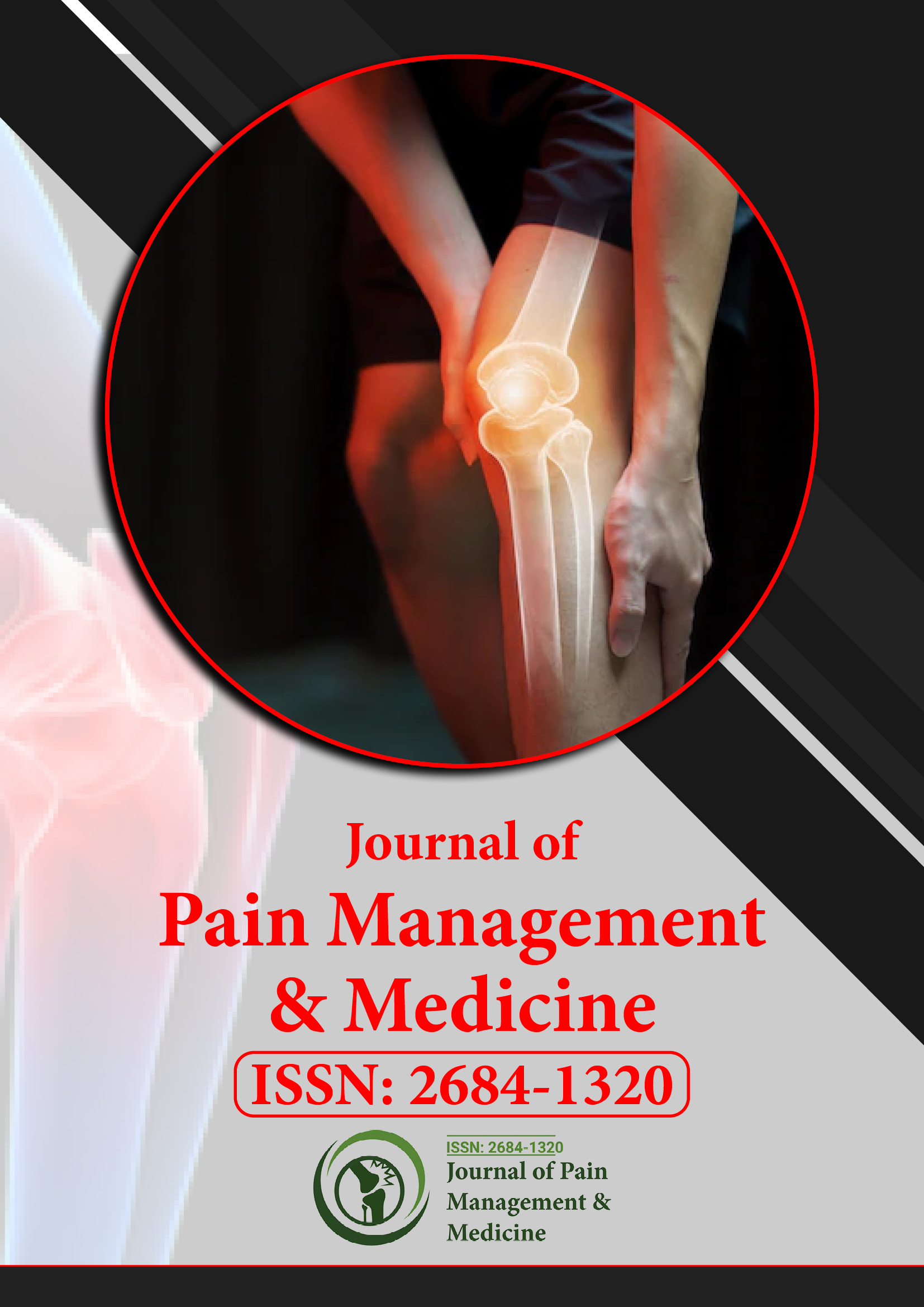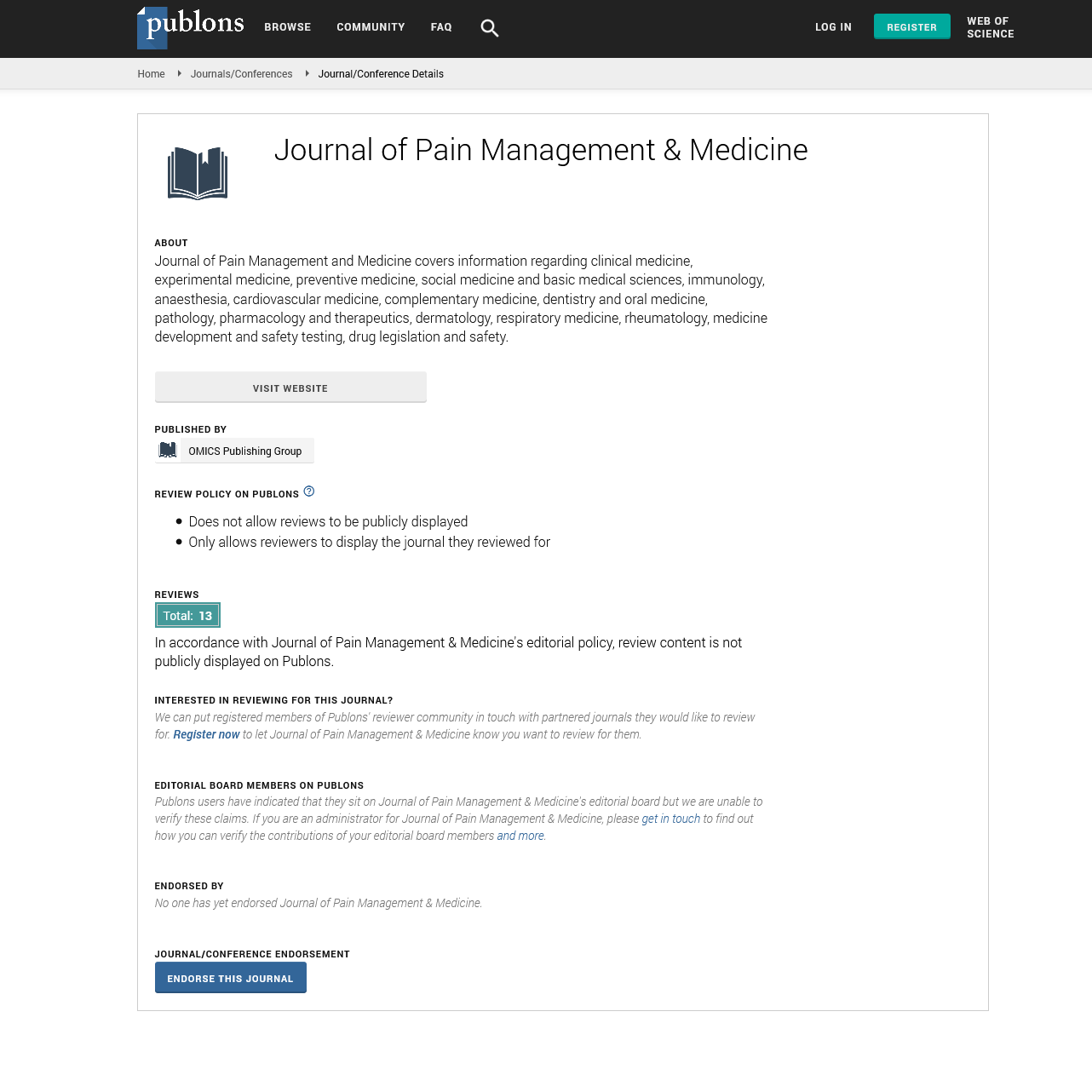Indexed In
- RefSeek
- Hamdard University
- EBSCO A-Z
- Publons
- Euro Pub
- Google Scholar
- Quality Open Access Market
Useful Links
Share This Page
Journal Flyer

Open Access Journals
- Agri and Aquaculture
- Biochemistry
- Bioinformatics & Systems Biology
- Business & Management
- Chemistry
- Clinical Sciences
- Engineering
- Food & Nutrition
- General Science
- Genetics & Molecular Biology
- Immunology & Microbiology
- Medical Sciences
- Neuroscience & Psychology
- Nursing & Health Care
- Pharmaceutical Sciences
Commentary - (2025) Volume 11, Issue 1
Anaesthesiology: The Silent Guardian of Modern Medicine
Bosques Houtrow*Received: 24-Feb-2025, Manuscript No. JPMME-25-28515; Editor assigned: 26-Feb-2025, Pre QC No. JPMME-25-28515 (PQ); Reviewed: 12-Mar-2025, QC No. JPMME-25-28515; Revised: 19-Mar-2025, Manuscript No. JPMME-25-28515 (R); Published: 26-Mar-2024, DOI: 10.35248/2684-1320.24.11.307
Description
Anaesthesiology is one of the most pivotal yet often underappreciated branches of medicine. It serves as the backbone of surgical procedures, ensuring patient safety, comfort, and optimal medical outcomes. While surgeons and physicians take center stage in medical advancements, anaesthesiologists operate behind the scenes, making critical decisions that can mean the difference between life and death.
The field of anaesthesiology has evolved significantly over the years. In the past, pain management was rudimentary, with techniques ranging from herbal concoctions to crude methods of inducing unconsciousness. However, with the advent of modern medicine, anaesthesia has become highly sophisticated, incorporating pharmacology, physiology, and advanced monitoring technologies. Today, anaesthesiologists not only administer anaesthesia but also manage acute and chronic pain, oversee intensive care units, and contribute to perioperative medicine.
One of the most pressing concerns in anaesthesiology is patient safety. Anaesthesiologists are responsible for monitoring vital signs, ensuring stable physiological conditions, and responding to emergencies during surgery. Advances in medical technology, such as real-time monitoring and computer-assisted drug delivery systems, have significantly improved safety standards. However, the human factor remains crucial, as the expertise of anaesthesiologists is irreplaceable in complex cases.
Another emerging trend in anaesthesiology is the push towards personalized medicine. Not all patients respond to anaesthesia in the same way, necessitating tailored approaches to dosage and drug selection. Genetic factors, underlying health conditions, and even lifestyle choices can influence anaesthetic outcomes. The integration of artificial intelligence and machine learning into anaesthesiology is also gaining traction, offering predictive models that enhance patient care and reduce complications.
Pain management is another critical aspect of anaesthesiology. Beyond the operating room, anaesthesiologists play a key role in treating chronic pain conditions such as neuropathic pain, cancer-related pain, and post-surgical pain syndromes. The opioid crisis has highlighted the need for alternative pain management strategies, and anaesthesiologists are at the forefront of exploring multimodal analgesia techniques. These include nerve blocks, spinal cord stimulation, and the use of non-opioid pharmacological agents to provide effective pain relief with fewer side effects.
Despite its crucial role, anaesthesiology faces significant challenges. Workforce shortages, especially in rural and underdeveloped regions, limit access to safe surgical care. The field also demands continuous education and adaptation to new medical advancements, placing a burden on practitioners to stay updated with the latest research and technologies. Additionally, the emotional and physical toll of being an anaesthesiologist— often dealing with high-stress situations and long working hours— cannot be overlooked.
Looking ahead, the future of anaesthesiology is promising. With ongoing research in precision medicine, enhanced monitoring techniques, and innovative pain management strategies, anaesthesiologists will continue to refine their practices to ensure better patient outcomes. As the silent guardians of the operating room, their contribution to modern medicine remains invaluable, warranting greater recognition and support in the healthcare landscape.
In conclusion, anaesthesiology is an ever-evolving discipline that plays a crucial role in ensuring safe and effective medical procedures. While the field faces challenges, ongoing advancements in technology and medicine continue to enhance patient care. Recognizing the importance of anaesthesiologists and supporting their work is essential for the future of surgical and pain management medicine.
Citation: Houtrow B (2025). Anaesthesiology: The Silent Guardian of Modern Medicine. J Pain Manage Med.11:307.
Copyright: © 2025 Houtrow B. This is an open access article distributed under the terms of the Creative Commons Attribution License, which permits unrestricted use, distribution and reproduction in any medium, provided the original author and source are credited.

